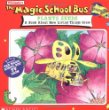Search Results: Returned 8 Results, Displaying Titles 1 - 8
-
-
2003, Pre-adolescent, Creative Education Call No: 571.8 642 Edition: 1st ed. Availability:1 of 1 At Location(s) Series Title: World of wonderSummary Note: Describes how birds, insects, wind and rain help plants reproduce by spreading their pollen.
-
-
-- Plant pollination2006, c2000., Primary, Schlessinger Media Call No: 571.8 2 Edition: Standard format. Availability:1 of 1 At Location(s) Series Title: Schlessinger science library. Plant life for childrenSummary Note: Uses microscopic photography and graphics to familiarize students with the parts of a flower, showing how flowers become pollinated, and examining the structure of seeds, their development, and dispersal.
-
-
2021., General Call No: 595.79 Chu Availability:1 of 1 At Location(s) Summary Note: Dive deep into the world of this everyday insect -- and the science behind its uncertain future. Bumble bees are as familiar to most of us as the flowers these fuzzy insects feed upon. But did you know that the bees in your garden could be escapees from a local greenhouse, or descended from stowaways on a Viking ship? Bumble bees are a vital part of our lives and Earth's ecosystems, so much so that we've commercialized their breeding and shipped them across states, countries, and ecosystems for our benefit. However, all of that human interference has consequences. Bumble bees are pushing out native species and altering ecosystems worldwide. Pesticide use has led to the spread of disease in local colonies. And some species may be disappearing entirely. The Beekeepers is an expertly researched overview of bumble bees -- from hive hierarchies to how their brains work -- and the passionate humans and scientists who are fighting for their survival. With a thoughtful and accessible voice, researcher Dana Church introduces readers to the fascinating world of bumble bees, how and why some are thriving while others are floundering, and how both experts and regular citizens are working to ensure their future. Equal parts endearing, frustrating, and hopeful, this scientific narrative is essential for readers looking to understand and make an impact on our changing world.
-
-
c2016., Primary, GARETH STEVENS PUBLISHING Call No: ENF 582.13 Availability:2 of 2 At Location(s) Series Title: Cycles in nature (Gareth Stevens Publishing)Summary Note: This book tells the process seeds undergo from tiny shells to roots, stalks, and eventually flowers.
-
-
c1995., Juvenile, Scholastic Inc. Call No: ENF 582 Col Availability:1 of 1 At Location(s) Series Title: The Magic School Bus
-
-
c2012., Juvenile, Rourke Pub. Call No: 571.8 642 Availability:1 of 1 At Location(s) Series Title: My science librarySummary Note: Simple text and photographs introduce the concepts of seeds, bees, and pollen and how they contribute to the reproduction of different types of plants.
-
-
Primary Call No: [E] Availability:1 of 1 At Location(s) Summary Note: A LOVE POEM FROM A FATHER TO HIS TWO SONS, AND A TRIBUTE TO THE BEES THAT POLLINATE THE FOODS WE LOVE TO EAT."Sometimes bees can be a bit rude.They fly in your face and prance on your food."And yet... without bees, we might not have strawberries for shortcakes or avocados for tacos! Shabazz Larkin's The Thing About Bees is a Norman Rockwell-inspired Sunday in the park, a love poem from a father to his two sons, and a tribute to the bees that pollinate the foods we love to eat. Children are introduced to different kinds of bees, "how not to get stung," and how the things we fear are often things we don't fully understand.Shabazz Larkin made his picture book illustration debut with Farmer Will Allen and the Growing Table, followed by his author/illustrator debut with A Moose Boosh: A Few Choice Words About Food, both named American Library Association Notable Children's Books and published by READERS to EATERS. He is a multi-disciplinary artist and an advertising creative director. He lives in Nashville, Tennessee, with his wife and two sons. SHABAZZLARKIN.COM.
-
-
-- Pollinators in crisis[2020]., Twenty-First Century Books Call No: HI-INT 595.79 HIR Availability:1 of 1 At Location(s) Summary Note: "Apples, blueberries, peppers, cucumbers, coffee, and vanilla. Do you like to eat and drink? Then you might want to thank a bee. Bees pollinate 75 percent of the fruits, vegetables, and nuts grown in the United States. Around the world, bees pollinate $24 billion worth of crops each year. Without bees, humans would face a drastically reduced diet. We need bees to grow the foods that keep us healthy. But numbers of bees are falling, and that has scientists alarmed. What's causing the decline? Diseases, pesticides, climate change, and loss of habitat are all threatening bee populations. Some bee species teeter on the brink of extinction. Learn about the many bee species on Earth--their nests, their colonies, their life cycles, and their vital connection to flowering plants. Most importantly, find out how you can help these important pollinators"--From the publisher's web site.









